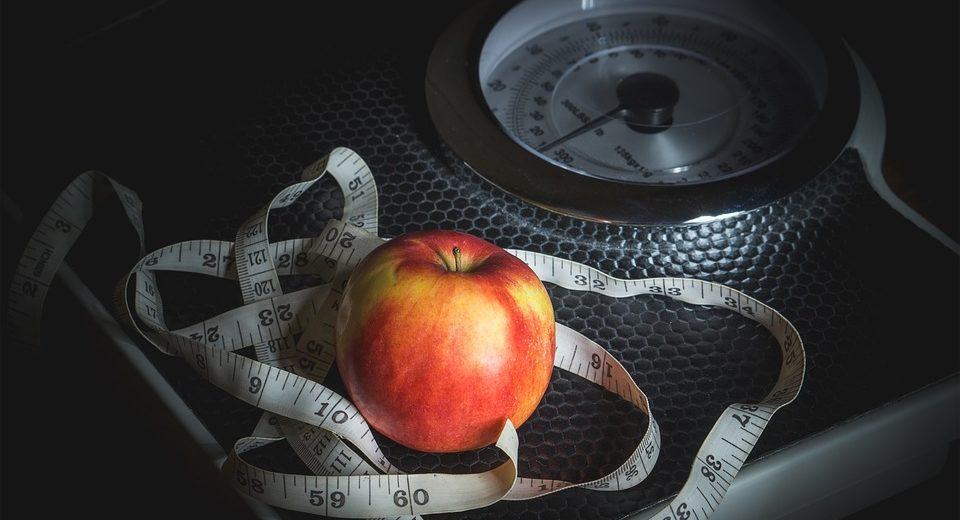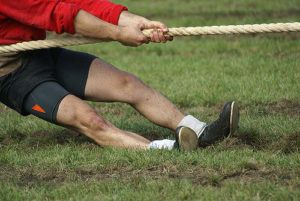Starvation mode to lose weight: is it real or is it just a myth?


Understanding ‘Starvation Mode’

The popular myth is that starving yourself will make you lose weight. Losing weight requires reducing total calorie intake to what your body can burn. Thus, it totally makes sense if you totally cut out your calories to lose weight permanently. However, permanent weight loss through starving is not always the best solution.
Three stages of starvation mode

Minnesota Starvation Experiment
During World War II, Europe experienced widespread famine. That made millions of people suffer. Dr. Ancel Keys of the University of Minnesota wanted to take part in solving the nutrition problem in Europe. He conducted the Minnesota Starvation Experiment to understand better the effects of hunger in the body. And how they must address it once the war is over.

Natural Setpoint
So how does this study relate to starvation mode dilemma we experience today? This study simply shows us that our bodies will naturally respond to the deprivation of food. It is a defense mechanism to preserve available calories or kick-in and ask for more calories that will continue bodily processes to function.
The Minnesota experiment proved to us that starving would eventually lead to physiological and psychological damage. It can slow down your metabolism, and it can also make you regain the weight you’ve lost since you’ll tend to eat more. The effects of starving are opposite of what you have planned in your mind.

Furthermore, our body has a weight range that it tries to maintain for a long period of time when we eat normal meals without cutting calories or trying to lose some weight. This natural weight range is determined mostly by our genes and maintained through the help of several factors such as the hormones, neurotransmitters, and neural connections. It is also processed at the hypothalamus. This part of the brain decides if our body has enough energy and it gives signals to the hormones to manage both hunger or energy usage. This is how the body works to maintain it at a set point.
The Minnesota Experiment is the most comprehensive study of hunger and its effects on the physique of humans up to this day. The publication was also used in determining guidelines in proper diet and lose weight techniques of the modern times.
Avoiding Starvation mode
Some people or those extreme dieters would usually try harder to take less food and trick their body signals. They won’t listen to signs their body shows such as hunger and dizziness. They are engrossed with the rules of the fad diet they have sworn. However, it causes damage to their body’s set point and brings them closer to starvation mode.
When you keep on starving your body, your body will automatically react. You’ll end up in a tug-of-war game and become exhausted in the end. You can’t win in this game, so you better stop playing now.

Whether you’re in stage one, stage two, or stage three of the metabolic compensation, the steps are just the same. You need to eat less and exercise less or eat more and exercise more. These are the best options that you can have. But to better understand everything, let’s tackle it further.
Eat the right kind of food
The first step to avoid starving mode is to eat just enough. Focus on your intake of nutrients and not on the calorie count. Figure out your body’s needs based on your weight, body composition, age, and gender. To boost your metabolism and end starvation mode, you need to eat sufficient food, so your body will feel that it is not in trouble. This way, your body won’t react as if it is experiencing hunger.
Aiming to have the perfect diet can also affect your body physiologically and psychologically. We’re just human, and we can have mistakes. Instead of being too hard on yourself, practice instead of mindful eating. Accept your body and aim to become healthy not skinny.
One example, eat protein because this will reduce your appetite and boost your metabolism. This will feed your body and supply nutrients to your muscles. Keep in mind that you are just adding protein in your diet, and not restricting any type of food.

Second, balance what you eat and eat unhealthy or processed foods in a given time. Eat 80% healthy foods and 20% mental foods, meaning foods that will satisfy your cravings. Be flexible in your diet so you won’t feel guilty in the end.
If you are experiencing health issues and would love to lose weight, then do it slowly. Losing weight rapidly is not good for it will sabotage your health. Experts recommend shedding one to two pounds per week through proper diet and exercise. Take it slowly but surely.
Don’t overeat
The second tip is not to overeat. If we have enough energy to support basic body functions such as breathing, regulating the temperature, and beating of the heart, then we won’t result in binge eating.

The majority of people believe that they overeat because they are tempted by their peers and they lack the right kind of motivation. However, binge eating is caused by biological processes due to cutting calories and food restriction, and not because of peer pressures. There are various studies conducted that prove that cutting food intake can backfire soon.
Eat three meals a day and make sure never to skip a meal. You can also eat snacks in between. Cut the portion of your food, but never skip the food.
Food restriction can affect brain functions such as making the body crave for more food, an increase in digestive hormones and increase salivation. You might neglect your body’s signals temporarily, but eventually, your body will give up and overeat. In the end, you’ll feel guilty and depressed about the outcome. Thus, you need to eat just enough to avoid overeating.
Don’t stress yourself
The chemicals in our biological composition connect our appetite and activity level. You can’t fool your brain by eating less and doing more exercises. Whenever your body receives less fuel, your everyday functions will also decline. These include lack of motivation, mood swings, and low energy level.
Make sure not to stress yourself and eat even little food before and after workouts. This will give you energy and pump you up. You could also take a break in dieting for a few days. This can boost your hormones, leptin, and thyroid; and make your body function accordingly.

To boost your metabolic rate after a decline due to starvation mode, you can try little by little to lift some weights. This will mitigate the dilemma that you have. But be sure to take a rest in between workouts so your body can recover too. Getting enough rest will also help prevent starvation mode.
The amount of calories you burn can change
- Basal Metabolic Rate (BMR): The amount of calories your body uses to keep up important roles. For example, breathing, pulse and mind work.
- Thermic Effect of Food (TEF): The calories consumed while digesting a food. For the most part about 10% of calorie intake.
- Thermic Effect of Exercise (TEE): Calories consumed amid physical action, like, work out.
- Non-Exercise Activity Thermogenesis (NEAT): Calories consumed squirming, changing position, and so on. This is generally unconscious.
Debunking the myth behind starvation mode
In sum, starvation mode is true, and it is inevitable. It is not popular, but the phenomenon is happening. Due to low-calorie intake, your body slows down its metabolism and delays weight loss, which will be crucial to your health.
This is the body’s natural response to a reduction of calorie intake. Without this phenomenon, humans would have been in danger even hundreds of years ago.
It has three stages that all try to protect the body’s natural set point. However, you can prevent starvation mode on any stage that you are so long as you eat healthily and exercise just right.
Unfortunately, there’s no single answer as to how many calories we must have in our body to prevent starvation mode in the long run. We all have different body types, and our metabolism varies. The point where our body must burn muscle and tissues to provide calories during famine also varies too.
The myth regarding starving to lose weight must be debunked. The general rule is that dieting and losing weight is a gradual process. Take time to research and try what’s best for you. Pay careful attention to what your body needs, listen to it, and treat it carefully. If you attune to your body without imposing too many limitations, then there’s no need to panic and worry about starvation mode.
